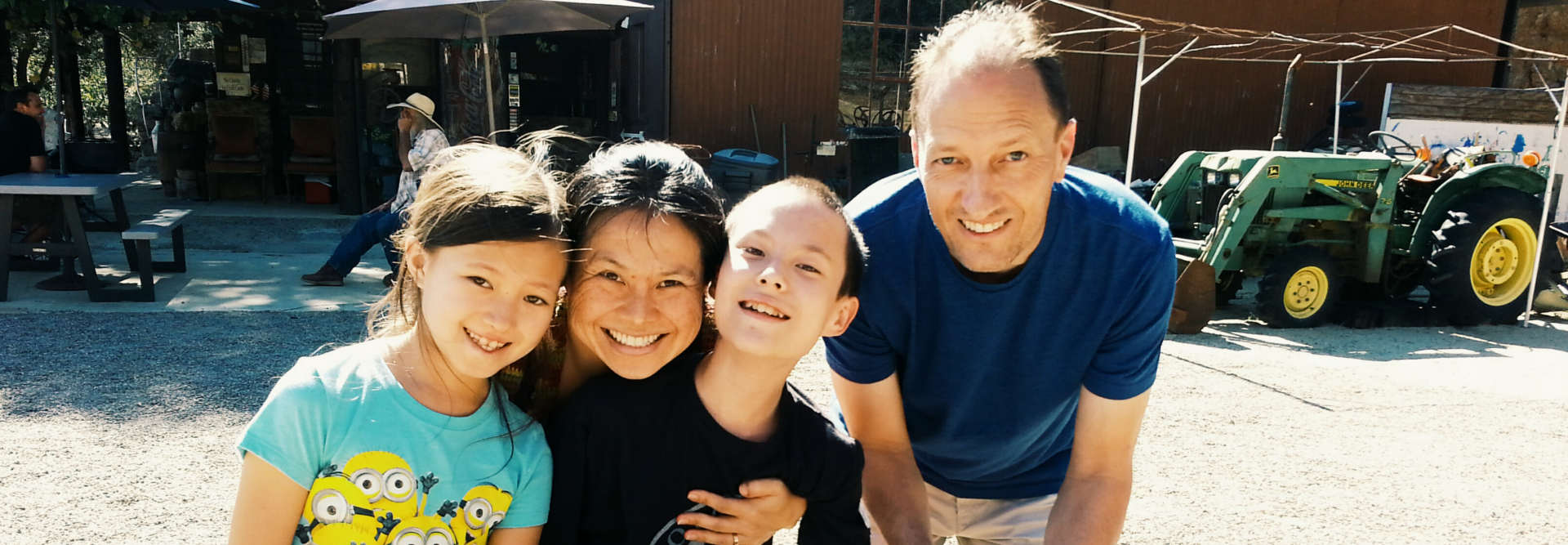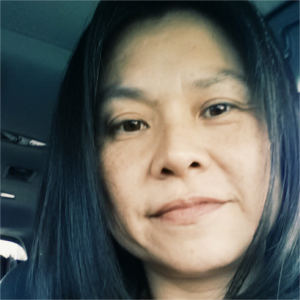Both my husband and I “grew up” in the world of compulsory schooling. While my husband never enjoyed school, I was the opposite. I was an excellent student — good grades, good behavior, academic awards, honor roll, voted “most likely to succeed” etc. When it came to “doing school,” I truly excelled. So, why, when it comes to our children, have we chosen a path so radically different from the one in which we were raised? What was the motivation for moving away from compulsory schooling and stepping onto a path that was more natural, more respectful of our children as individuals? When, and how, did this paradigm shift occur?
We did not set out to be “unschoolers.” In fact, my idea of homeschooling was “doing school at home.” But that changed within the first week of our homeschooling journey. It was clear that neither child wanted to “sit” for lessons, no matter how interesting. I remember using a math program that incorporated songs and manipulatives so that math “learning” would be “fun.” The first lesson had the instructor, me, using wooden sticks to demonstrates groupings of 5. Maybe I wasn’t too keen on the curriculum and my kids picked up on that, but neither was interested in the lesson at hand. However, they did want to use the wooden sticks to create bridges and picture frames and any number of projects. It was humbling to realize that my children’s learning would have very little to do with what I wanted to teach but everything to do with what they were interested in. It sounds so simple, but having grown up within the system of compulsory schooling, I wasn’t convinced.
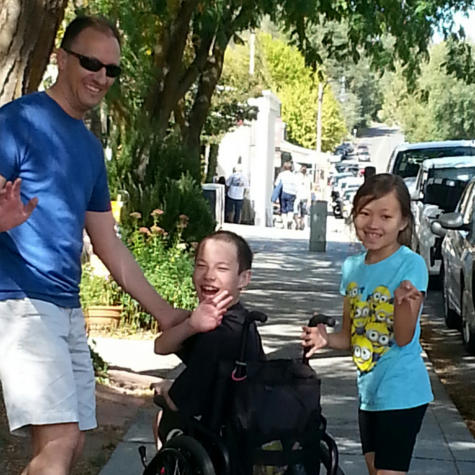
So, we took more of a unit studies approach I would choose the “unit” and the kids could “study” it in any way they wished. For example, we started with the solar system. We did puzzles, watched videos, read books. And, while it was interesting, neither child expressed any desire to delve further into the topic than what I was presenting. And, while they would happily follow along, once the allotted time was over, each would move on to something else: For my son, watching sports and playing Wii games. For my daughter, arts and crafts. I was still operating under the assumption, as incorrect as it was, that I was in charge of their learning.
During that first year of homeschooling, I began to question my assumptions of learning and why there is so much pressure to have kids know the same chunks of information at the same time, arbitrarily decided by some educational authority. I began to question what true learning is and how it evolves. I read John Holt, Sandra Dodd, Oliver DeMille, Peter Gray, John Taylor Gatto, Charlotte Mason. I explored various philosophies of homeschooling, many of which incorporated some type of curriculum or at least book suggestions. And, as I began to dive deeper into the waters of learning, I began to see more clearly that learning and living are inseparable. As humans, we are wired to learn. It can’t be helped. If, and when, we want to learn about something, we will do it. And, with this realization, I was on the path of self-directed learning.
I was quite surprised, really. After all, before we had kids, I was on a path to becoming a “teacher of teachers” as a doctoral student in a school of education. I was completely invested in the idea that those who held degrees and conducted research should be the dictators of what should be taught and how it should be taught. Going into the program, I believed that education was a transformative experience, that there was a relationship between the learner and the learning experience; however, I also believed that the best environment for such an experience was “school”...or in this case, higher education/college. My area of interest focused on how to create that type of learning experience, within this institution of higher education, that would allow for students to have a greater voice in their own learning.
When my son “started school,” he was only 3. He was enrolled in a special-education preschool program because of his many needs. He required speech therapy, physical therapy and occupational therapy as a result of his premature birth and the subsequent diagnosis of cerebral palsy. At this time, I was fully invested in the benefits of institutionalized schooling, if only for the extracurricular benefits the institution offered my son. But, as we began to transition out of the special education setting and into the compulsory world of public schooling, I began to reconsider the value of such an institution to my son’s development.
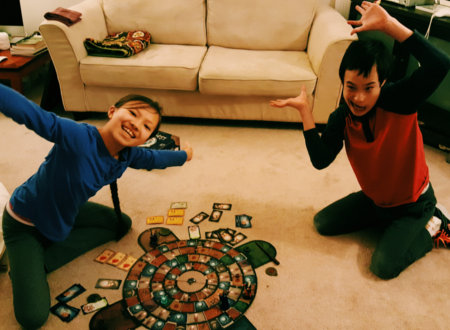
While it was clear he could handle the “academics” of school, because of his physical challenges, he would be considered “slow.” He would be placed in remedial programs and separated from his peers. He would be measured and judged according to what the school determined was appropriate.....and he would fall short. I remember sitting at a table, across from all the “experts” who would be interacting with my son during a given school year, as we discussed my son’s “individualized education plan” (the IEP). And as each therapist, teacher, and psychologist offered his/her plan, I began to feel smaller and smaller.
There was a theme: a theme of deficiency. Each “expert” proposed goals that would address those areas where my son was “falling behind” or not performing at the same level as his peers. He would most likely spend his school day in a “special ed” learning center, where he would have to exhibit proficiency in certain skills before he would be allowed to interact with his peers, for example, how many times he could write the letter “o” within the lines or how often he could articulate the “th” sound so that it would be understandable to the listener.
And as I sat there listening to these “goals and objectives,” the paradigm shift began — that shift from dependence on others to tell us what we should be doing to ensure his “success” to trusting our son to tell us what he needed. What he needed was freedom. My son needed the freedom to learn at his own pace, in his own way, and through his own means. He needed the freedom to be himself.
That was the beginning of our homeschooling journey, and as we began to trust our children, a new world of exploration and natural learning opened up to us. The kids fell into “learning mode” because, for them, there was no distinction between learning time and living time. It was all one. We allowed them to lead us in the direction they wanted to go. Certainly, we utilize the library, the museums and local resources for field trips and other experiences. But, for the most part, we spend our days at home, enjoying each other’s company, reading together, sharing those activities or subjects that we find interesting.
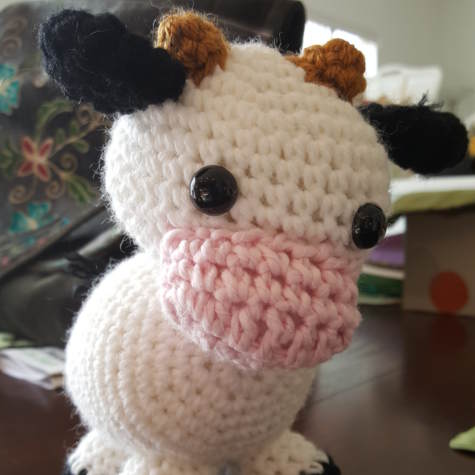
My daughter still enjoys arts and crafts; she likes to make things. For the past few years, she has been exploring the world of knitting and crochet, and now her skills are quite advanced. I have noticed that through this “one” subject, crochet, she has taught herself a great many math concepts, from multiples to ratios to proportions. She can read a pattern, modify it and even create her own designs. She is 10.
My son, who developed a passion for all things sports only AFTER we stepped onto the homeschooling path, can rattle off team and player stats from professional to college, and even some high school teams. He keeps track of team rankings and lately has been deciphering how those stats are calculated. And speech....well, he is the commentator of all the games he watches and plays. And, in doing so, he is naturally “practicing” those sounds that were once considered so challenging. He also loves to read aloud.
As for my husband and me, traveling this path has been a life-changing experience. We are motivated to pursue our own self-directed learning and engage in more meaningful activities based on our own specific interests. And, in doing so, we have begun to break through those constructs that have kept us locked in a way of life that limited us. Self-directed learning is a lifestyle of individual freedom and, as such, it touches every aspect of our daily lives.
If you enjoyed this article and feel called to give back to ASDE, here are ways you can support our work:
- Donate money
- Share our content with others! Click one of the buttons above to easily share on Twitter, Facebook, or email.
- Consider becoming a Contributor for Tipping Points


